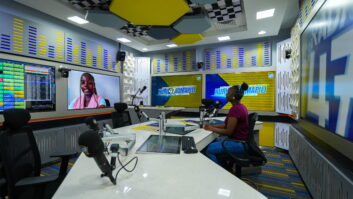
Vernacular radio stations broadcast in local languages and have become increasingly critical in Africa for passing essential information to people about the fight against COVID-19.
Such stations have become a key tool during the crisis, especially in the absence of community meetings.
Local radio channels are considered an effective way of reaching target audiences. Stations reach their communities better since they understand the information being shared and can present it in the simplest from.
Vernacular stations are entertainment outlets but also seek to promote different cultural values and ideologies through the content they disseminate. The programs they air have a positive impact in their communities and on nations at large.
Cultural Advocacy
Ramogi is a popular vernacular station among the Luo-speaking audience. Luo is the fourth-largest ethnic group in Kenya. As the pioneer dholuo radio station on the FM spectrum, the station prides itself on its advocacy for cultural protection and interaction, helping pass this from one generation to the next.
This programming has nurtured talent. Artists from far and wide in the lake region have an opportunity to showcase their works through airplay of music, which exposes them for business.
The station also has given voice to the voiceless. Call-in programs like “Ohigla Mnayien” and “Ramogi Baraza,” where cross-cutting topical issues take center stage, offer a platform for public discourse in any matters that affect the population. It also holds leadership to account, championing for good governance. It has broadened the democratic space and the liberties enjoyed by the masses.
Initially this space was locked because of language barriers, with mainstream media pegged to English and Kiswahili, thus locking out millions of people.
The vernacular station has provided an alternative platform to the masses premised on three key pillars of media: Information dissemination, education and entertainment. In the time of pandemic, the station has been a viable platform for discussions and a source of information and updates on ways of preventing the spread of COVID-19.
The station has a highly popular talk show and phone-in program known as “Kaka Wanene,” meaning “the way we see it.” As one of its listeners remarked, the show touches a special nerve. Ramogi has continued to use it to sensitize listeners and disseminate important information on ways of stopping the spread of the coronavirus, and it is one of the vernacular stations on which the Ministry of Health in Kenya has chosen to run informercials about COVID-19.
“First language”
Ukhozi FM, a Zulu-language station in KwaZulu Natal, is the single largest station in South Africa. With over 7.6 million listeners, it is the top radio station in the country.
Zulu South Africans represent the largest ethnic group there. The station caters to one of the country’s major geographical and cultural areas, and has played a pivotal role in the fight against the pandemic, providing health updates alongside its entertainment and educational programs.
The station derives much of its power from the ability to reach a large population of South Africans, many of whom still get their news and information from the country’s most readily available technology platform: the radio.
Meanwhile, in Lagos and Abuja in Nigeria, Wazobia FM, a popular vernacular radio station, has been hosting insightful programs on the effect of the pandemic on various aspects of the society.
Similarly, Dandal Kura Radio International broadcasts in Hausa and Kanuri language in the Lake Chad basin region. The station has been running shows to sensitize listeners to effective measures to take to prevent the spread of COVID-19.
Charles Odhiambo, radio program manager with the Royal Media Services in Kenya, said vernacular radio stations play a crucial role and can help people make informed decisions about important issues. “The first language of any population is key” he says, “As the late Nelson Mandela once said, if you talk to a man in a language he understands, that goes to his head; if you talk to him in his own language that goes to his heart.”
Indeed, vernacular radio stations across Africa have become increasingly popular because they have emotional resonance that lack in other stations: They simply talk to their target listeners in their own language and reflect their own culture back to them.
Also by this author: “In Africa, Stations Spread Lifesaving Information.”
Raphael Obonyo is a public policy analyst and writer who has served as a consultant with the United Nations and the World Bank. An alumnus of Duke University, he has authored and co-authored numerous books, including “Conversations About the Youth in Kenya.” Obonyo is a TEDx fellow and has won various awards.







